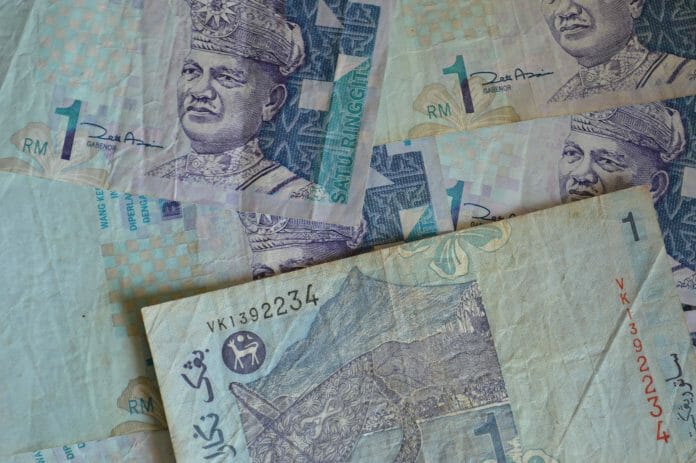Finance Minister, Tengku Zafrul Aziz has highlighted that 40 percent of millennials spend beyond their means and has urged Malaysians to be more financial literate.
According to Bank Negara Malaysia’s (BNM) Assistant Governor, Nazrul Hisyam Mohd Noh, 47 percent of Malaysian youths have high credit card debts while 38 percent have been identified as having personal loans.
“So, think thoroughly about what is necessary and prioritise your purchases, whether it is a new outfit or new phone, or like one of my nephews who wants a PS5, and you will find that every ringgit will go a long way.
“Warren Buffett famously said, ‘Do not save what is left after spending, but spend what is left after saving’. In other words, pay yourself first and use the power of compounding to your advantage,” he said in his speech at the Kembara Bijak Wang 2020 (KBW 2020) prize-giving ceremony on March 9.
However, Tengku Zafrul did not highlight the government’s efforts to raise the minimum wage in the country to produce more income towards Malaysian employees.
Putrajaya raised the minimum wage by RM100 last year.
The RM1,200 minimum wage has been gazetted by the Human Resources Ministry on January 10, 2020 and officially encompassed 56 city and municipal council areas from February 1, 2020 which was under the Minimum Wages Order 2020.
The statement by Tengku Zafrul has also produced mixed responses among Malaysians.
“We are dependent on market forces without proper regulation, which is subject to high manipulation in Malaysia. Employers, especially SMEs will always want to keep costs low, thus hiring based on market average is highly flawed as it never moved anywhere except downwards when talents are abundant.
Sadly, we are also seeing labour manipulation done by large local employers as well likewise TopGlove and Kossan simply because they can get away with the law. The only thing forcing them to behave is international trade laws. They are exporting their products too,” Data scientist and Retail Trader, Khairunnisa Abdul Rahman said.
Corporate executive, Aaron shared that an open market where the wages are more transparent is essential to have a standard baseline for a certain industry.
“Once you have an average, you can compare the viability with the current living economics and from there, determine the most minimum you can get. When it is private, no one knows what they deserve and that gives way to exploitations,” he added.
One anonymous twitter user felt that there should be a benchmark and an independent body to hold companies accountable in the salary department as more transparency is needed to ensure public trust.
“Everyone is trying to get a job and there’s this mindset that job hopping will secure a higher wage. So, people do not care much starting with a low salary but not all job hopping secures a better salary. With this mentality, that is why the government needs to step in and increase the basic minimum wage,” Site Engineer, Hazwan Saharullah said.
Co-Founder of TwentyFive Brunei, Firdaus Omar said that Malaysia has a weak workers union, leading to a passive push for higher minimum wage.
“Collective bargaining not only helps towards better salary but overall better perks for the workers. The abysmal push by the government to recalibrate the minimum wage to today’s cost of living levels would be another,” he added.
“The only way is to increase minimum wage, so companies are forced to adhere to it. Companies are capitalists who will take advantage as and when they can. The lower they can go the better. Financial literacy is close to impossible when there is no money to handle at the end of the day. Living in KL and Selangor while earning RM1,800-2,000 is impossible,” Full-time Real Estate Negotiator, Natasha pointed out.
A study by Bank Negara Malaysia (BNM) in 2018, showed that approximately 75 percent of Malaysia’s working population are earning no more than RM 3,100. This means approximately 25 percent of Malaysians are paying income tax.
BNM also stated that nearly half of Malaysian households and working population are barely meeting their basic needs.
“Although it is linked to the slow rate of increasing minimum wages, it should be examined independently as they are two different problem statements. The indicators for financial literacy are factors such as insolvency rate, unemployment rate possibly through theory of planned behaviour.
The indicators for minimum wage are policy-making and data driven policies. It is important to view both matters separately, because otherwise the argument is going to be filled with fallacies,” Administrative Director, Fayadh Wahab explained.
Additionally, findings by BNM showed that Malaysian workers are still being paid less than workers in benchmark economies, even after accounting for the different productivity levels across the countries. The benchmark economies were the US, the UK, Australia, Germany, and Singapore.
“This suggests that Malaysia’s current wage productivity levels are misaligned,” the report stated.
The Bank Negara study concluded that Malaysia’s labour share of income lags behind that of advanced economies. In other words, a larger portion of national income goes to the capital owners rather than the workers.
Malaysia’s unemployment rate rose to 4.9 percent in January compared with 4.8 percent in December as the number of unemployed persons rose to 782,500 from 772,900 according to the Department of Statistics Malaysia (DOSM).









